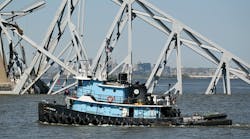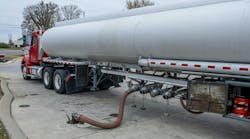The department's Energy Information Administration said reserves additions exceeded production by 21% for oil and 31% for natural gas.
Proved reserves are volumes of oil and gas still in the ground that are reasonably certain to be produced in the future.
Thunder Horse Field, a new deepwater field located 125 miles southeast of New Orleans, accounted for a significant portion of all new oil reserves.
The majority of crude oil proved reserves additions came from the deepwater Gulf of Mexico Federal Offshore and Alaska, both of which are frontier areas.
Total discoveries of crude oil were 2,565 million barrels in 2001, almost twice the year 2000 discoveries and greater than three times the prior 10-year average. The majority of crude oil discoveries in 2001 was in new fields, particularly in the Gulf of Mexico Federal Offshore and Alaska.
Proved reserves of dry natural gas increased 3.4% in 2001. Reserves additions were 131% of domestic dry natural gas production. U.S. natural gas proved reserves have increased in seven of the last eight years. The majority was in the Pinedale Field in Wyoming, the Lobo Trend and Barnett Shale gas fields in Texas, and the Wattenberg Field in Colorado.


